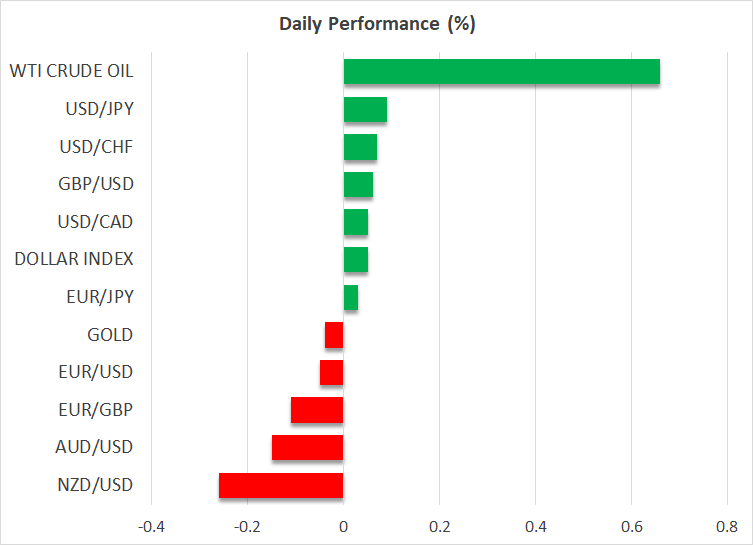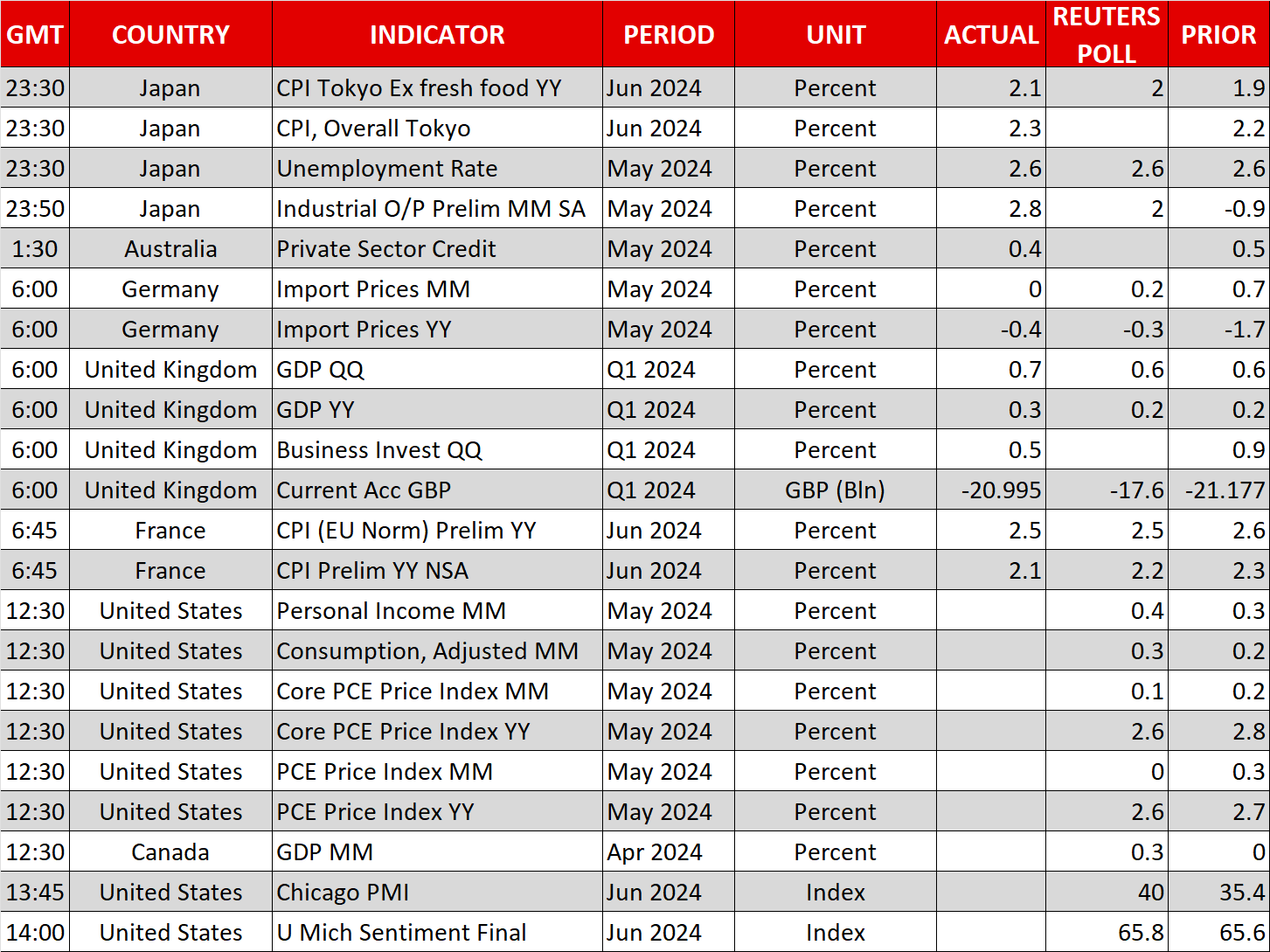Core PCE in Focus Ahead of French Elections
2024.06.28 06:35
- Dollar gains after first presidential debate
- Focus today turns to core PCE inflation
- Yen slides, intervention risks rise
- French citizens head to the ballots on Sunday

Trump Election Win Bets Support Dollar
The traded slightly lower against most of its major peers on Thursday, extending gains only against the and the . That said, the greenback is on the front foot again today, gaining the most ground versus the and the .
What helped the dollar move higher during the Asian session today may have been the debate between the 2024 presidential candidates Joe Biden and Donald Trump, with the latter seen as putting in a stronger showing than the incumbent President.
The likelihood of Trump returning to the Oval Office could mean lower corporate taxes, tougher trade relations, and consequently more advances on Wall Street and higher Treasury yields. The prospect of more tariffs on China may be the reason why the dollar is gaining the most against the aussie and the kiwi, as China is the main trading partner of both Australia and New Zealand.
PCE Inflation Expected to Cool
Today, dollar traders are likely to turn their attention to the core PCE price index for May, the Fed’s favorite inflation metric. Expectations are for a slowdown to 2.6% y/y from 2.8%, something supported by the slide in the core CPI rate for the month.
Currently, market participants are penciling in around a 70% chance of a first quarter-point reduction by the Fed in September. Thus, a slide in the core PCE rate may encourage them to take that percentage higher and thereby sell some dollars.
Yen Traders Stay on Intervention Watch
The yen continued to bleed, with the dollar/yen briefly breaking above 161 earlier today as traders continued to test the nerves of Japanese authorities, which have lately become vocal again about one-sided declines in their currency.
The acceleration in the Tokyo CPI figures for June passed unnoticed by yen traders, though the probability of another 10bps hike by the BoJ in July remained elevated at around 60%.
What’s even more interesting is that today, the Japanese government replaced the nation’s top currency diplomat Masato Kanda with financial regulation expert Atsushi Mimura. With Finance Minister Suzuki noting that authorities remain “deeply concerned” about the impact of steep yen declines, Kanda’s replacement may have increased the risk for a new intervention episode soon.
In light of this, yen traders may now be keener to cover some of their short positions to minimize potential losses in case of intervention, something that could result in a small setback in the dollar/yen.
French Election, Round One
In Europe, the spotlight is turning to the first round of the French elections. If no candidate gets an absolute majority, which is the most likely case, the top two candidates, and any other that receives more than 12.5% of the registered votes, move to a second round.
Opinion polls suggest that Le Pen’s far-right National Rally is likely to secure the most seats in Parliament, but not a majority. The far-left New Popular Front is seen second and Macron’s Ensemble coalition third.
This first round could shed light on how likely it is for Le Pen to form a coalition with smaller parties after the second round, or whether the nation will be left with a completely hung parliament. Given that no election can take place for another year under the French Constitution after this, a hung parliament may be the worst-case scenario for the as the Eurozone’s second-largest economy will enter a prolonged period of political stalemate.








